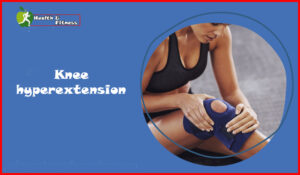Hypertension, generally known as high blood pressure, is a medical condition. Where the blood pressure in the arteries is consistently elevated. It is often referred to as the “silent killer” because it rarely shows noticeable symptoms but can lead to severe health issues, including heart disease, stroke, and kidney failure.
Blood pressure is measured in millimeters of mercury (mmHg) and is expressed as two numbers: systolic pressure (the force of blood against artery walls when the heart beats) over diastolic pressure (the force of blood against artery walls when the heart is at rest between beats). The normal blood pressure reading is around 120/80 mmHg. Hypertension is diagnosed when the reading consistently exceeds 130/80 mmHg.
Several factors contribute to the development of hypertension, including genetics, age, unhealthy diet (high in salt and fat), lack of physical activity, obesity, alcohol consumption, and stress. Moreover, certain medical conditions, such as diabetes and kidney disease, can also elevate the risk.
Early detection and management of hypertension are crucial. Regular health check-ups can help monitor blood pressure levels and ensure timely intervention if needed. By adopting a healthy lifestyle and following medical advice, individuals can effectively manage hypertension and reduce the risk of associated health problems.
Remember, staying informed and proactive about your health is essential for overall well-being.
1. Early and late symptoms of hypertension.
1) Early symptoms:
Headache, mostly in the back of the head, accompanied by nausea, vomiting and other symptoms; dizziness, more common in female patients, insomnia, limb numbness, often numbness in fingers and toes or a crawling sensation on the skin, and inflexible fingers.
2) Late symptoms:
Compensatory hypertrophy of the left ventricle, gradual decline in renal function, polyuria, nocturia, renal failure and azotemia or uremia . Ischemia of brain tissue, headaches of varying degrees, dizziness, blurred vision, limb numbness or temporary aphasia, paralysis and other symptoms. Fundus, moderate sclerosis.
2. Typical symptoms of hypertension.
1) No symptoms.
The main symptoms of hypertension are headache, dizziness, vertigo, head swelling, etc. In severe cases, complications such as asthma, dyspnea, edema, visual impairment, nausea, vomiting, hemiplegia, oliguria, chest pain, etc. However, there are not many people with typical symptoms. Many people with hypertension are asymptomatic, and even the systolic blood pressure is as high as 200 mmHg or above. It is not uncommon for people to be clinically asymptomatic or have mild symptoms.
2) Dizziness is the most common symptom of hypertension.
Some are transient, often occurring when squatting or standing up suddenly, and some are persistent. Dizziness is the main pain of patients. They have a persistent dull and uncomfortable feeling in the head, which seriously hinders thinking, affects work, and causes loss of interest in surrounding things. When hypertensive crisis or vertebral-basilar artery insufficiency occurs , symptoms similar to inner ear vertigo may occur.
3) Headache.

Headache is also a common symptom of hypertension. It is usually a persistent dull pain or a throbbing pain, or even a bursting pain. It often occurs in the morning when waking up, and gradually subsides after getting up and moving around or after meals. The pain is mostly in the temples on both sides of the forehead and the back of the head.
4) Irritability, palpitations, and insomnia.
Hypertensive patients are often impatient, sensitive, and easily excited. Palpitations and insomnia are common. Insomnia is often characterized by difficulty falling asleep or waking up early, unreliable sleep, nightmares, and easy awakening. This is related to cerebral cortex dysfunction and autonomic nervous system dysfunction.
5) Inattention and memory loss.
This is not obvious in the early stage, but gradually worsens as the disease progresses. Because it is quite distressing, it is often one of the reasons that prompts patients to seek medical treatment. It manifests as easy distraction and recent memory loss. It is often difficult to remember recent events, but things in the past, such as childhood, are still fresh in the memory.
6) Limb numbness.
Common symptoms include numbness in fingers and toes, or a crawling sensation in the skin, or tension and soreness in the neck and back muscles. Some patients often feel that their fingers are not flexible. Generally, they can get better after proper treatment. However, if the limb numbness is stubborn, lasts for a long time, and is fixed in a certain limb, accompanied by limb weakness, cramps, and throbbing pain, you should go to the hospital in time to prevent stroke.
7) Bleeding.
This is less common. Hypertension can cause arteriosclerosis, which reduces the elasticity of blood vessels and increases their fragility, making them prone to rupture and bleeding. Nosebleeds are the most common, followed by conjunctival hemorrhage, fundus hemorrhage, and cerebral hemorrhage. According to statistics, about 80% of patients with heavy nosebleeds suffer from hypertension.



8 Comments
Pingback: Muscle building control blood sugar, but exercise is also important
Pingback: Icd 10 hypokalemia: Symptoms, Causes, and Treatment
Diastolic dysfunction, coded as I51.9 under ICD-10, is a condition where the heart’s ventricles have difficulty relaxing and filling with blood. This can lead to symptoms such as shortness of breath and fatigue. Early diagnosis and management are crucial to prevent complications. Treatment typically involves lifestyle changes and medications to improve heart function and relieve symptoms associated with diastolic dysfunction icd 10
I cherish the way your words reflects your distinctive personality. It’s like engaging in a meaningful conversation.
Your blog brightens my day like a ray of warmth and positivity. Thank you for sharing your uplifting words.
Pingback: Green Olives Benefits: Boost Heart Health & Antioxidants
Pingback: 9 Amazing Services Offered by Syracuse Community Health Center
Pingback: Top 7 Critical Facts About Abdominal Aortic Aneurysm ICD 10